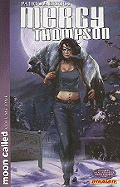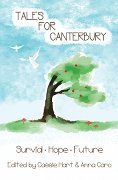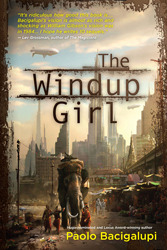Helen Lowe's Blog, page 297
May 25, 2011
Nancy Mattson: "Lisi's Letters from Karelia", Cardinal Points Literary Journal

Nancy Mattson
Last year, when I was editor on the Tuesday Poem Hub, I featured a work titled Compasses: A Triptych by Nancy Mattson.
Compasses: A Triptych forms part of Nancy's forthcoming collection Finns and Amazons, Arrowhead Press. Finns and Amazons is a collection that celebrates early 20th century Russian women artists, such as Varvara Stepanova (the subject of Compasses), who were featured in the exhibition Amazons of the Avant-Garde, eds. Bowlt & Drutt, London, Royal Academy of Arts, 1999. Many of these women towered above their age in artistic terms, but much of their work was lost, buried or overlooked until the 1990s.
The other woman who informs Finns and Amazons is Nancy's (Great) Aunt Lisi who first emigrated from Finland to North America and later to Soviet Karelia in the 1930s; she was lost in 1939. A sequence of poems in the Finns and Amazons collection is based on letters written by Lisi to her sister Anna, who remained in Canada. Four of these poems, together with excerpts from the letters, have just been published in the current issue of Cardinal Points, a New York-based literary journal of Russian-focused literature. To give you a taste, here is an excerpt from the first poem:
Letter from Somewhere, 1932
In the unmapped centre of the uncut forest
before we came somewhere from Uhtua
happy workers hustled up the first buildings
in the fourth year of a five-year plan
time moves so fast whatever our purposes
restaurant sauna laundry-hut bakery shop
warehouse stables office red corner to hang
faces of leaders posters photographs banners
charts to drill this alphabet into our wooden heads
prepare us to work for the common good
as our leaders so often remind us but
our plans our wishes our feet go dragging …
(c) Nancy Mattson
.
To read the full feature, including Nancy's introduction, please click here.
May 24, 2011
What I'm Reading: "Moon Called" by Patricia Briggs
 A while back you may recall that I posted about one of the favourite posts I'd read otherwhere recently—in this case on the Orbit blog—which was by Patricia Briggs and titled Mercy and her Friends in My Back Yard.
A while back you may recall that I posted about one of the favourite posts I'd read otherwhere recently—in this case on the Orbit blog—which was by Patricia Briggs and titled Mercy and her Friends in My Back Yard.
I also wrote that " … I found something very evocative in Patricia's description of the voices of coyotes, dogs and wolves in and around her prairie backyard—her writing really made me want to hear them for myself."
Well, I couldn't do that for two reasons—firstly, good old EnZed, i.e. no coyotes. Secondly, it's an awful long way to the US, attractions of hearing coyote choruses or no, and I do have that GR to finish.
So I did the next best thing—I acquired a copy of Moon Called, the first book in Ms Briggs' Mercy Thompson urban fantasy series, about a coyote shapeshifter, and began to read.
Now I know I may be a little late to the party here, because Moon Called did first come out in 2006, but I loved it. Mercy is such a smart, feisty and good-hearted character that it's very hard not to like her—and even though there's the obligatory love triangle I felt it was pretty well done … In terms of the urban fantasy world Patrica Briggs has created and the "anthropology" (for want of a much better word) of coyote, werewolf, and to a lesser extent vampire (yup, there's vampires and fae, too) societies within our larger society, I thought it had a nice feel of authenticity to it. And the story, which fits into the category of 'good light read', rocks along.
So that's my report: really enjoyed it; glad I read the post on Mercy and her Friends in My Back Yard and got interested; and yes, I will be reading the next-in-series, Blood Bound (probably quite soon  )
)
May 23, 2011
Tuesday Poem: "The Ballad of Sir Bors" by John Masefield
WOULD I could win some quiet and rest, and a little ease,
In the cool grey hush of the dusk, in the dim green place of the trees,
Where the birds are singing, singing, singing, crying aloud
The song of the red, red rose that blossoms beyond the seas.
Would I could see it, the rose, when the light begins to fail,
And a lone white star in the West is glimmering on the mail;
The red, red passionate rose of the sacred blood of the Christ,
In the shining chalice of God, the cup of the Holy Grail.
The dusk comes gathering grey, and the darkness dims the West,
The oxen low to the byre, and all bells ring to rest;
But I ride over the moors, for the dusk still bides and waits,
That brims my soul with the glow of the rose that ends the Quest.
My horse is spavined and ribbed, and his bones come through his hide,
My sword is rotten with rust, but I shake the reins and ride,
For the bright white birds of God that nest in the rose have called,
And never a township now is a town where I can bide.
It will happen at last, at dusk, as my horse limps down the fell,
A star will glow like a note God strikes on a silver bell,
And the bright white birds of God will carry my soul to Christ,
And the sight of the Rose, the Rose, will pay for the years of hell.
.
by John Masefield, 1878-1967
—
Carcanet Press, in presenting a bio of John Masefield in relation to their publication Sea Fever: Selected Poems of John Masefield, ed. Philip Errington, 2005, says the following:
"John Masefield (1878-1967) is one of the great storytellers of English poetry, a spinner of yarns and ballads of tall ships and exotic seas, of the deep-rooted life of the rural England in which he grew up, and of the great narratives of Troy and Arthurian legend. Some included here – 'Sea-Fever' and 'Cargoes' – are among the best-loved poems in English …"
The reason I chose a relatively unknown poem, The Ballad of Sir Bors, rather than Cargoes and Sea Fever which are indeed favourites of mine, is mainly because of having featured the Riders of Rohan's Poem, from JRR Tolkien's The Lord of the Rings, last week. As I said then, the Riders' poem is an adapation of the Anglo Saxon poem, The Wanderer, although Tolkien used more contemporary iambec meter for his adaptation, in keeping with English epic and heroic poetry of the past 500 or so years. This, of course, got me thinking about English epic and heroic poetry generally (did you know that I've been waiting to spring Paradise Lost on you all?  ) and some specific examples I've loved over the years. (Tim Jones' already gave us Tennyson's Ulysses last year.)
) and some specific examples I've loved over the years. (Tim Jones' already gave us Tennyson's Ulysses last year.)
The Ballad of Sir Bors is one of those poems. I love the richness of the rhythm and rhyme, but I also agree with Carcanet about the "story" element of Masefield's poetry, in this case as reflected in the persona of the Grail knight, Sir Bors. On the one hand the poem shows us Sir Bors' dedication to the grinding, unrelenting, unendurable quest for the Holy Grail that has become his life. Yet even in the midst of the hell that his quest has become, Sir Bors is also a poet—both through his physical eyes on the world surrounding him and the vision of his soul for the Grail, he sees Beauty.
The other reason I chose this particular Masefield poem is because something in the rhythm and tone of the opening lines reminds me—in the best possible way—of WB Yeats' The Lake Isle of Innisfree that I featured for Mother's Day. (Because it was me mum's fav'rite, ay!)
—
To read the featured poem on the Tuesday Poem Blog hub—and to link to other Tuesday Poets posting around the world—either click here or on the Quill icon in the sidebar.
WOULD I could win some quiet and rest, and a little ease,
In the cool grey hush of the dusk, in the dim green place of the trees,
Where the birds are singing, singing, singing, crying aloud
The song of the red, red rose that blossoms beyond the seas.
Would I could see it, the rose, when the light begins to fail,
And a lone white star in the West is glimmering on the mail;
The red, red passionate rose of the sacred blood of the Christ,
In the shining chalice of God, the cup of the Holy Grail.
The dusk comes gathering grey, and the darkness dims the West,
The oxen low to the byre, and all bells ring to rest;
But I ride over the moors, for the dusk still bides and waits,
That brims my soul with the glow of the rose that ends the Quest.
My horse is spavined and ribbed, and his bones come through his hide,
My sword is rotten with rust, but I shake the reins and ride,
For the bright white birds of God that nest in the rose have called,
And never a township now is a town where I can bide.
It will happen at last, at dusk, as my horse limps down the fell,
A star will glow like a note God strikes on a silver bell,
And the bright white birds of God will carry my soul to Christ,
And the sight of the Rose, the Rose, will pay for the years of hell.
May 22, 2011
What I'm Reading: "broadsheet 7″
Recently I mentioned that I had received my contributor's copies of broadsheet 7: new new zealand poetry (The Night Press) edited by Mark Pirie. broadsheet is a by-invitation publication and I was pleased to be able to contribute Starman and also Penelope Dreaming from the Ithaca Conversations sequence. Since receiving broadsheet, I have also been enjoying the process of working through the journal, savouring the work of my fellow poets. Because I like to take poetry slowly, rather than galloping through, I haven't finished yet. And because I always work through from beginning to tend, I haven't yet reached the featured guest, Anthony Rudolf of the UK, or the other poets in the latter part of the journal.
So, like Arnie in Terminator 2, I'll be back … But for now I can say that I am very much enjoying broadsheet 7 and there are both poems and lines within them that delight, from Emma Barnes' opening poem, Sacral:
" … I play quartet notes. I play
crotchets. The string wound
around me bodily. I am tied
in the bowing of a cello
in the crowing of a crowd.
The crowning of your head
The cawing of you crawling.
You open your eyes and say:
"What magic is this?" …"
to the magic realism of Basim Furat's Students of Hondori (translated by Abdul Monem Nasser; edited by Mark Pirie):
" …The cries of sellers there
awaken in me an adoration for an ancient land
where jewels are words, river water is sold in jars
and sea scent covers the stalls …"
and Sarahda Koirala's delicate irony in Portrait:
" … But after the photo you took a day off
brightening the shadow on my face
cast by the open window
and air-brushing the hair from my eyes."
These are just a small sample of the many fine poems on offer, but I hope they tempt you to dip into broadsheet 7 for yourself.
May 21, 2011
What I've Been Doing: The Great Revision Rocks On
Yesterday I posted about proofing my short story The Fountain, which is part of the Tales for Canterbury project—now at the printers.
The other main thing I've been plugging away on this week is of course—say it with me, or alternatively, groan, in chorus!—the GR or Great Revision of The Gathering of the Lost (The Wall of Night Series Part 2.) If you've been following these updates, you'll know that I'm know into the penultimate section of the book—and since the ultimate section is basically an extended epilogue this means we're getting close. But, but … (no, please don't groan again, be nice, ok  ) those of you who have been following the conversation around my Thursday post on Time, Quality & the Modern SFF Novel may have picked up that I look for certain things in my SFF reading:
) those of you who have been following the conversation around my Thursday post on Time, Quality & the Modern SFF Novel may have picked up that I look for certain things in my SFF reading:
sustained world building;
continuity and "consequence" in developing/implementing either science or magic systems within the story;
plot continuity and credibility; and
characters that read as "real" people (or "personalities" vis-a-vis non-human characters) and who remain consistent throughout in terms of their development / response to events, e.g. I don't think it "plays" for an author to have a protagonist do something against their established character and values just to make the plot work: I believe there needs to either be a motivation provided where it's plausible for the character to behave in the way necessary to advance the plot—or the plot needs to change.
(In terms of the last two bullet points, I look for these in my non-SFF reading as well.)
Since this is what I look for as a reader—as well, of course, as great ideas and stories that draw me in to the extent that I don't even think about how the book is written—it's probably not surprising that I try really hard to make sure that the positives of these elements, rather than the negatives, are present in my own writing. That's a really big part of what I'm doing with the GR.
Another thing I look for—I'm talking about big hits by the way, rather than basic spelling and grammar, repetition of words and phrases etcetera, which is all part of the process, as well—are instances where I slip into telling too much of the story in "retrospect", i.e. where the protagonists remember events that they, but not the reader, have experienced—especially when that knowledge/recollection becomes essential to the plot's development or resolution. So if I see that happening I always ask myself: how can I retell this so the action is in real-time for reader, not retrospect?
This is not to say that a protagonist cannot have secrets or be unreliable (in fact it has been argued that a great many of the characters in the Wall world are essentially unreliable), but I do feel that there should always be some sort of trail for the reader to follow—if he/she chooses to hunt for it, and however much misdirection the author chooses to use—to figure out "whodunnit" (so to speak.)
A lot of stuff to think about—and of course the "bigger" the story in terms of plotlines, numbers of point-of-view and also major secondary characters, all with motivations and back stories that affect the plotlines, the more "threads" the author has to keep tabs on. Obviously this is vital when a change in one place with character A, for example, could potentially throw out another plotline—or more—somewhere else with characters B and C.
I know I've probably said this before, but it is hard work, no question—sort of how I imagine driving a coach and four might be. As the "driver" you know you gotta keep those horses running in harness and in step and not get the reins tangled—but when everything's working together the hard work aspect fades and then it's pure fun. And who knows, after a while, if you're really lucky, you – may – even – pick – up – speed!
The way I see it though, the hard work is all my part, as the "driver." I may talk about it a little here, just so you know that things are happening, the pistons are cranking and the wheels are turning, but really—the reader's part should be all the fun stuff: the horses striding out, the road rolling away beneath your wheels, and the dust all behind you.
But tell me, is that the way you like it? Or do you like to a peek into the carriage-house, the tack room, and stable—just from time to time?
May 20, 2011
The Excitement Mounts: "Tales for Canterbury" Goes To Press
 One thing that happened in the early part of this week is that I completed the final proof of The Fountain, the short story that I donated to the Tales for Canterbury anthology, a fundraising project for the Christchurch earthquake recovery effort put together by Cassie Hart of SpecFicNZ and Anna Caro of Random Static—all kudos to both of them.
One thing that happened in the early part of this week is that I completed the final proof of The Fountain, the short story that I donated to the Tales for Canterbury anthology, a fundraising project for the Christchurch earthquake recovery effort put together by Cassie Hart of SpecFicNZ and Anna Caro of Random Static—all kudos to both of them.
As a resident of Christchurch I am obviously very much in support—no surprises, you may say, that I am willing to put a story out there. What has been really gratifying though, has been the level of both national (extra-Christchurch) and international support.
National authors include Phillipa Ballantine, Karen Healey, Tim Jones, Ripley Patton, & Mary Victoria, to name just a very few.
International authors include Neil Gaiman, Gwyneth Jones, Jay Lake, Juliet Marillier and Sean Williams (again, to name just a few.)
Tales for Canterbury is: "loosely themed around survival, hope and the future." Given the lineup of both national and international writers I can only imagine that it's going to be an "absolutely fabulous  " anthology.
" anthology.
And yesterday editor Anna Caro emailed me that: " … the book is at the printers!" ("Woot!" I added, not to be undone.)
Honestly though, this is a great moment and a great cause with "all profits … [of this anthology] … being donated to the Red Cross Christchurch Earthquake Appeal."
The Tales for Canterbury project target is to raise $5000 for the earthquake appeal fund—and so far $1855 has been raised. A great way to help the cause is to preorder your copy—& maybe (no pressure!) a few extra as gifts. And it's really easy to preorder: all you have to do is go to the Random Static website here.
The other really great thing that you can do is to spread the word—I think it would be fantastic if Tales for Canterbury went viral!
I hope you will consider doing both or either, (& with bells on) because as I know I've said before: I think it's going to be a great anthology—and it's already a very worthy cause.
May 19, 2011
Christchurch Friends of the Library: Guest Speaker
I've always been very much a library person—as well as having a home overflowing with books I've bought (currently all in boxes because of living in earthquake city, but still, one day …)—so I am very pleased to have been able to accept the Christchurch Friends of the Library's invitation to be their guest speaker on Tuesday 14 June, at 12.30 pm in the Sydenham Room of the wonderful South Library.
I haven't entirely decided what I'll be speaking on yet, but it'll probably be around my personal path to international publication & being a NZ fiction author published overseas—& maybe just a wee bit of a paean to why writing fantasy is "da bomb." 
May 18, 2011
Time, Quality, & The Modern SFF Novel
Yesterday, I referred readers to a number of interesting (I thought!) articles I'd read otherwhere in internet land. One of them was a two-part interview with Paolo Bacigalupi on the Orbit blog. One of the things that stuck with me in what he said, when speaking about his award-winning novel, The Windup Girl, was this:
 "In the end, it took me about three years to write, not including the couple of years before where I'd been working out the world and writing short stories set there."
"In the end, it took me about three years to write, not including the couple of years before where I'd been working out the world and writing short stories set there."
You all know that I think The Windup Girl is an outstanding novel. And clearly a few other folk think so, too, because the awards its won include 2010 Hugo, Locus and Compton Crook Awards and the Nebula Award 2009, as well as being named as the ninth best fiction book of 2009 by TIME magazine. Awards aren't everything, of course, but still—not bad going, huh?
But here's the thing: what Bacigalupi said in the Orbit interview is that The Windup Girl took him between 3 – 5 years to write. Now there is no way that I can prove a correlation between time spent and quality, but there's no doubt in my mind that The Windup Girl is a quality book. Equally clearly, it also took time to produce …
This has got me thinking, especially about today's SFF writing world and the pressure to crank out a completed manuscript in 6 months to a year maximum. And although, once again, I cannot prove a correlation between timeframe and quality, I cannot help noticing several contemporary series where I have loved the first book and been bitterly disappointed with the second and third. I cannot help but wonder how much of this is because the first books are not written to such a tight timeframe, but the subsequent books are—and there just hasn't been enough time to really get them right?
Effectively, what the 6-12 month standard timeframe means is that books are being treated like a production line item. But are they, really? After all, no matter how much the writer may strive to write to a formula, each plot is still at least slightly different, with some fresh problem to be resolved, and usually has to bring in some new characters as well. That's just at the formula end of the spectrum. If an author does not wish to write formula, but rather seeks to try and create something really new with each book, then the going gets even tougher …
I think there is no question that time-to-market matters in our modern world. But what is the flip side of getting products to market quickly if in the end they disappoint readers? And if readers learn that the subsequent books in a series may often disappoint, what does that mean for the market in the medium to longer term? The whole thing about production line development after all, is the ability to replicate uniform design and achieve uniform quality—so if you can't assure those two aspects through your process, then you're not going to have a successful operation. So I think my conclusion is that books aren't an industrial product and don't suit that sort of model. And if they are an artisan product, where each item has some degree of uniqueness about it, then uniform time/production processes just aren't going to work, certainly not all of the time—and are probably going to miss the quality/customer satisfaction target a lot of the time.
All food for thought, both as a reader and writer, even if I have no answers but only speculation to share—but from observation and experience, I cannot help feeling that it is no accident that an outstanding novel like The Windup Girl also took time in the making.
May 17, 2011
Around The Traps: Shaun Tan, Paolo Bacigalupi & Professor John Johnson of Caltech
Every now and then—okay, quite often really  —I see an article that I have to share.
—I see an article that I have to share.
Bookish Dreaming: Celebrating Shaun Tan

Shaun Tan
Celebrating Shaun Tan by Australian writer, editor and academic, Gillian Polack, on Bibliobuffet is one of those articles. Here's how it begins:
"Today I'm celebrating. Shaun Tan has just won a shared Academy Award for his animation, The Lost Thing (following up with an Australian Ditmar Award), and the Astrid Lindgren Award for his work in children's literature. This is a good moment. Not as good as the moment when I first discovered his work, or the moment when I met him and discovered that I could be shy of someone with whom I have good friends in common and who is gentle and affable and very, very Australian. Shaun Tan is that rare thing—a genuine genius. Enough to drive anyone to shyness.
I want to celebrate, however, and to share his brilliance with you …"
To read the full article, click here.
Checking out Bibliobuffet in full is worthwhile, too … Yet another interesting bookish site: yahoo!
—
An Interview with Paolo Bacigalupi (in Two Parts)

Paolo Bacigalupi
You may recall that two of my favourite books last year were The Windup Girl and Shipbreaker, both by Paolo Bacigalupi. And The Windup Girl—entirely deservedly in my opinion—was cowinner of the Hugo Award for Best Novel (together with China Mieville's The City & The City.)
Recently, James Long interviewed Paolo Bacigalupi on the Orbit blog. Here's a snippet from Part 1:
" … So in the end, I think the reason I wrote The Windup Girl was at least partially because it was the most ambitious and difficult thing that I could attempt … Of course, then the book turned out to be even more challenging than I'd originally thought. It had a lot of characters and storylines, it was set in a culture that I needed to learn a lot about, and the mechanics of the world were fanciful enough that I wasn't sure readers would be able to accept it at novel length. In the end, it took me about three years to write, not including the couple years before where I'd been working out the world and writing short stories set there. So, that's one part, at least. It helped that it seemed like it was a relevant story, and that it had something relevant to say about agribusiness, and energy and maybe economic colonialism …"
To read the full first interview, click here.
In the second interview, Paolo Bacigalupi talks a little bit more about being a writer:
"It's hard for me to have faith in my stories as I work on them. Hard to believe they should be written. Hard to believe that they're worthwhile. Hard to believe that they aren't stupid. Being surrounded by other writers ameliorates that, for me, at least …"
Again, to read the full second part, click here.
—
Navigating A Career: Tips from an Astrophysicist
Professor John Johnson
Talking work practice brings me to a third post that struck a chord this week—not from a writer this time, but from an astrophysicist, Professor John Johnson of Caltech. (Although as a successful academic, I imagine he writes a fair amount as well.) His advice on navigating a career was for graduate students in his academic discipline, but nonetheless, some of his observations resonated with both my personal experience and observation of the writing life:
" … The field of astronomy comprises extremely smart, technically-gifted people who could easily have made very comfortable salaries after they graduated with their B.S. degrees. Yet astronomy grad students spend their days in cramped offices working 10 to 14 hour days for annual salaries that place them squarely below the poverty line. My point is that we're not doing astronomy for the money. Most of us are in this field because we find it inspiring, exciting and…fun. Right? Isn't that why were here? Yet, sadly, some graduate students spend a lot of their time being stressed-out and unhappy …"
Am I wrong to think that you could substitute writer / writing career at so many places in that paragraph? I may get shouted down by my fellow writers, but somehow I don't think so …
To read the full article, click here.
You may recall that two of my favourite books last year were The Windup Girl and Shipbreaker, both by Paolo Bacigalupi. And The Windup Girl—entirely deservedly in my opinion—was cowinner of the Hugo Award for Best Novel (together with China Mieville's The City & The City.)
May 16, 2011
Tuesday Poem: The Riders of Rohan's Poem, from "The Lord of the Rings"
Where now the horse and the rider? Where is the horn that was blowing?
Where is the helm and the hauberk, and the bright hair flowing?
Where is the hand on the harpstring, and the red fire glowing?
Where is the spring and the harvest and the tall corn growing?
They have passed like rain on the mountain, like a wind in the meadow;
The days have gone down in the West behind the hills into shadow.
Who shall gather the smoke of the dead wood burning,
Or behold the flowing years from the Sea returning?
—
This poem appears in The Two Towers, the second volume in The Lord of the Rings trilogy and is a song of the Riders of Rohan, a people who are basically very Anglo-Saxon/Norse in conception, although they ride horses rather than sail longships. I have always loved its strong elegaic quality and sense of life's transience, and the grief and loss that goes with that.
Tolkien was a philologist, specialising in Anglo-Saxon, and the language of the people of Rohan, the Rohirrim, is strongly based in that language. The lines in this poem are an adaptation of part of the Anglo-Saxon poem The Wanderer (sometimes also called The Wayfarer.)
I did not realise this until I studied Old English at university and recognised the lines. Of course, I then found that the source for The Lord of the Rings adaptation was well-known to just about everyone else! But when I first read The Lord of the Rings at around age 14 (or it might have been 13) I simply thought that the poem was wonderful. So it is—and has been now, in terms of its source, for over a thousand years.
Reproduced here in accordance with fair use.
—
To read the featured poem on the Tuesday Poem Blog—and to link to other Tuesday Poets posting around NZ and the world—either click here or on the Quill icon in the sidebar.




